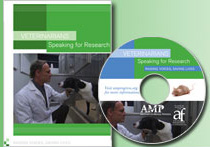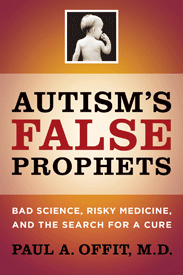Back in November, at the Philosophy of Science Association meeting in Pittsburgh, I heard a really interesting talk by Jeremy Howick of the Centre for Evidence-Based Medicine at Oxford University about the challenges of double-blind trials in medical research. I’m not going to reconstruct his talk here (since it’s his research, not mine), but I wanted to give him the credit for bringing some tantalizing details to my attention before I share them with you here.
Category Archives: Medicine
Access rare books without being made to wear white cotton gloves.
It turns out that the session on electronic scholarship I mentioned didn’t really get into the defining characteristics of electronic scholarship, nor how it might differ from “digital media”. (Part of this had to do with trying to fit spiels from nine speakers into a 75 minute session while still allowing time for discussion. You do the math.)
Anyway, one of the panelists, Stephen Greenberg, is from the National Library of Medicine, and he gave us a peek at some digital materials that warm my old-timey, hide-bound heart. Specifically, I am ga-ga for the Turning The Pages project.
Random question for the hive mind.
The other day, my better half and I were discussing scratching. Predictably, in the course of the discussion, I became aware of every itchy square millimeter of skin I might possibly possess.
I wondered whether scratching actually works — that is, whether scratching ever acts to make an itch go away, or even to reduce it.
“Of course it does,” my better half opined. “Why else would we do it?”
“Because we’re poorly adapted?” I ventured.
So, here’s the question*:
Conditions for ethical therapeutic use of a placebo.
Jake has a great post up today about the frequency with which American internists and rheumatologists prescribe placebos and the ethical questions this raises. Jake writes:
For my part, I don’t think I would be comfortable deceiving my patient under any circumstances. I see my role as a future physician partly as a healer but also as an educator. Patients — particularly patients with intractable chronic illnesses — want to understand what is happening to them. I almost feel like in deceiving them, I would be denying them that small measure of control — that small measure of dignity — that is vital to feeling like a complete person, even in the face of a life destroying illness. The ability to make decisions for yourself is an empowering feeling. You only take that away if you are absolutely convinced — as in the case of dementia or severe mental illness — that someone is completely incapable.
The whole post is well worth reading. But I’m wondering whether there couldn’t be some conditions under which use of a placebo wouldn’t violate a patient’s dignity.
A drug company, a psychiatrist, and an inexplicable failure to disclose conflicts of interest.
Charles B. Nemeroff, M.D., Ph.D., is a psychiatrist at Emory University alleged by congressional investigators to have failed to report a third of the $2.8 million (or more) he received in consulting fees from pharmaceutical companies whose drugs he was studying.
Why would congressional investigators care? For one thing, during the period of time when Nemeroff received these consulting fees, he also received $3.9 million from NIH to study the efficacy of five GlaxoSmithKline drugs in the treatment of depression. When the government ponies up money for scientific research, it has an interest in ensuring that the research will produce reliable knowledge.
GlaxoSmithKline, of course, has an interest in funding studies that show that its drugs work really well.
DVD review: Veterinarians – Speaking for Research.

Americans for Medical Progress has produced a new DVD titled Veterinarians – Speaking for Research. (You can get your own free copy at the Americans for Medical Progress website.)
You might consider this DVD a follow-up of their previous DVD, Physicians – Speaking for Research (reviewed here). However, the two are pretty different, perhaps suggesting some differences not only in the intended audiences for the DVDs (veterinarians vs. physicians) but also in the concerns of the segments of the public each set of professionals is likely to encounter.
In this post, I’ll first discuss Veterinarians – Speaking for Research. Then, I’ll examine some interesting ways it differs from Physicians – Speaking for Research.
Tracking the lag between promise and payoff.
One of the reasons non-scientists see science as at all valuable is that scientific research may result in useful medical treatments. And one of the aspects of science that seems elusive to non-scientists is just how long it can take scientific research to bring those useful medical treatments about.
In the 5 September 2008 issue of Science, Despina G. Contopoulos-Ioannidis, George A. Alexiou, Theodore C. Gouvias, and John P. A. Ioannidis [1] present research that examines just how long it has taken to get from initial discoveries to medical interventions.
Book review: Autism’s False Prophets.

Paul A. Offit, M.D., Autism’s False Prophets: Bad Science, Risky Medicine, and the Search for a Cure. Columbia University Press, 2008.
Autism’s False Prophets: Bad Science, Risky Medicine, and the Search for a Cure examines the ways that uncertainties about autism’s causes have played out in the spheres of medical treatment, liability lawsuits, political hearings, and media coverage. Offit’s introduction describes the lay of the land in 1916, as polio epidemics raged. That lay of the land, with public fear and willingness to pursue strange, expensive, and dangerous treatments, evokes a strong parallel to the current public mood about autism. It also evokes the hope that our current state is a “before” that (like polio’s “before”) will be followed by an “after” where sanity prevails about autism’s causes and treatments.
Clinical trials — or not — of chelation therapy.
Back in July, Science ran an interesting news article about an on again, off again clinical trial of chelation therapy in the treatment of autistic children. I found the story fascinating because it highlights some of the challenges in setting up ethical research with human subjects — not to mention some of the challenges inherent in trying to help humans to make good decisions grounded in the best available scientific knowledge.
From the Science article:
The pros and cons of screening mammography: reading my ‘patient instructions’.
Connected to my last post (and anticipated by my razor-sharp commenters), in this post I want to look at the pros and cons of routine screening mammography in women under age 50, drawing on the discussion of this subject in the multi-page “patient instructions” document I received from my primary care physician.
The aim of screening mammography is to get information about what’s going on in the breast tissue, detecting changes that are not apparent to the eye or to the touch. If some of these changes are the starts of cancer, the thought is that finding them sooner can only be better, allowing more time for treatments that remove the cancer or that slow its grown and arrest its spread to other parts of the body.
Having more information earlier, you’d figure, is bound to save lives. (Whether this conclusion is supported by the data is harder to discern, as Orac makes clear in this discussion of relevant research.)
But the information comes at a cost. Not only do mammograms require fancy (and expensive) equipment to capture the images, well-trained technicians to work with the patient to get the images, and well-trained physicians to interpret the images, but they expose the patient whose breasts are being imaged to low dose X-rays. Exposure to this sort of ionizing radiation can increase your risk of cancer.
So, right off the bat, it makes sense to have a screening policy that gets you the most useful information for the least risk and cost. Here’s how the patient information I was given lays out the thinking behind the risk/benefit balance my medical group favors:
